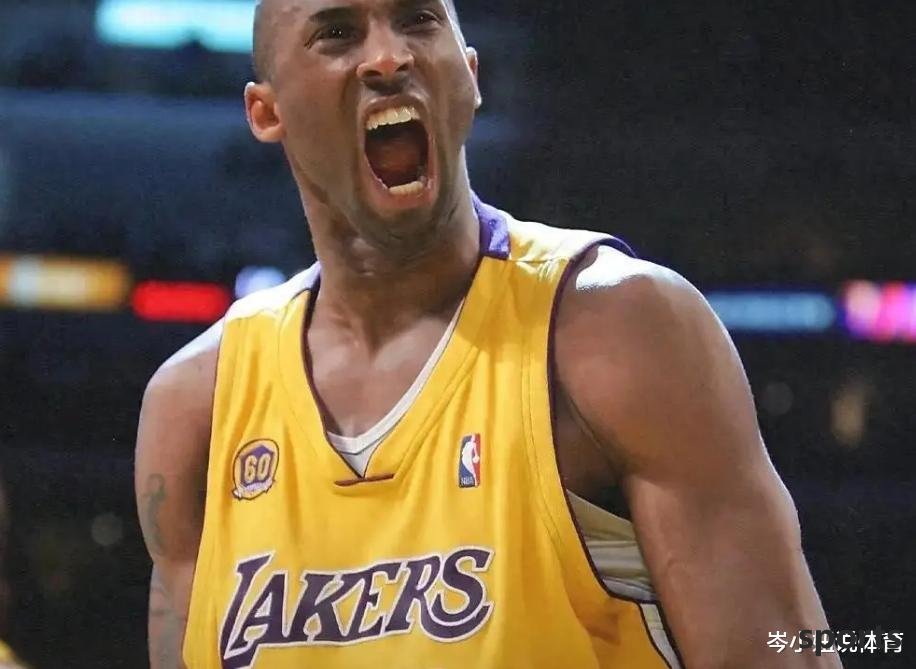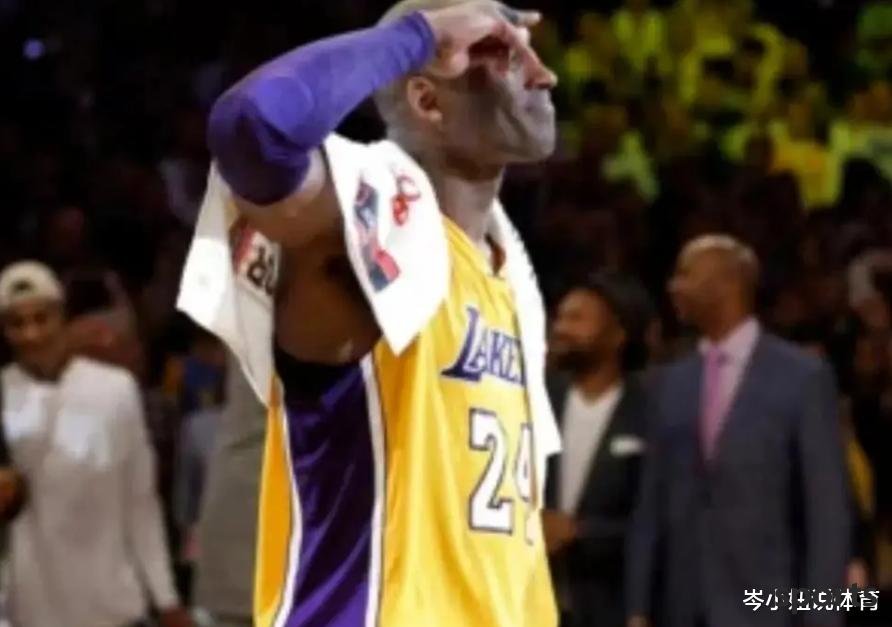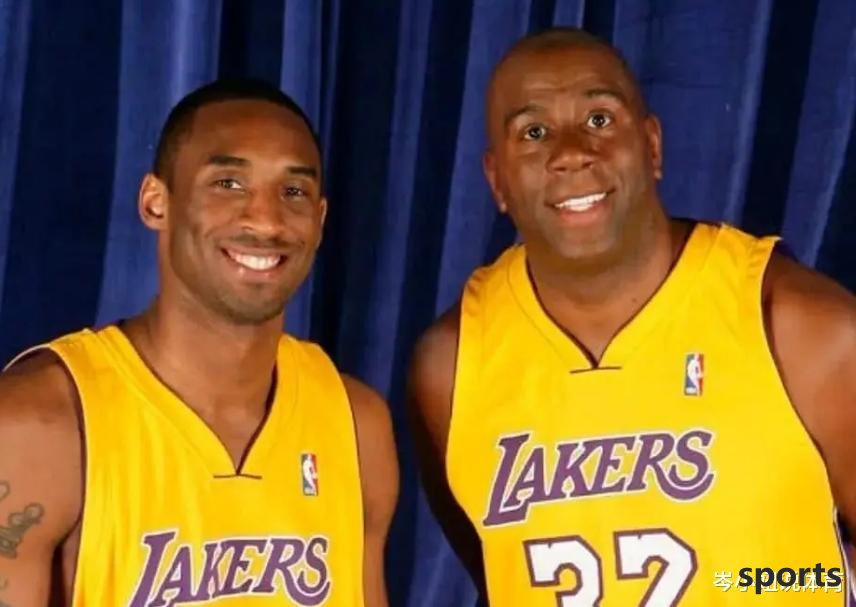Moon Sports > Basketball > Is Magic Johnson or Kobe the first person in the history of the Lakers? New fans think it is Kobe
Is Magic Johnson or Kobe the first person in the history of the Lakers? New fans think it is Kobe
On July 20, in the glorious history of the Los Angeles Lakers, the debate about "the first person in the team history" never stopped. This debate that spans the times is essentially a collision between two basketball philosophy and two spirits of the times. Old fans insist that "Magic" Elvin Johnson is the undisputed founder of the Purple and Gold Dynasty, while the new generation of fans hold high the banner of Kobe Bryant, believing that the spiritual totem of the Black Mamba can better represent the soul of the Lakers. To solve the question of this century, we need to conduct in-depth analysis from four dimensions: honor book, influence of the times, basketball technological revolution and cultural symbols.

**The Battle of Kings in the Honor Book**
Magic Johnson's career is like a perfect script: he led the team to win the championship and won the FMVP (1980) in the rookie season. He won the O'Brien Cup five times in the following 12 seasons (1980, 1982, 1985, 1987, 1988), won the regular season MVP three times (1987, 1989, 1990), and made the finals nine times to the peak record. His "Showtime" combination with Jabbar redefines team basketball, and his average of 11.2 assists per game is still the No. 1 in NBA history.
Kobe has written a longer legend in 20 years: 5 championship rings (three consecutive championships in 2000-2002, two consecutive championships in 2009-2010), two FMVPs (2009, 2010), one regular season MVP (2008), 18 All-Stars and fourth-ranked 33,643 points. His "OK combination" with O'Neal created the first dynasty of the 21st century. His feat of leading the team alone in two consecutive championships in the later period has even performed personal heroism to the extreme. Judging from hard honors, the Magicians are slightly better in efficiency and team achievements, while Kobe is more dazzling in durability and scoring explosiveness.

**Basketball philosophy in the change of the times**
Magicians were the prophets of the basketball revolution. His 6-foot-9-inch height completely overturned the point guard definition, and the "Xiaotian Gou" defeated the Celtics in the 1987 finals and became a classic of the century. Under his leadership, the Lakers averaged 115.6 points per game on the offensive storm (1986-87 season), and Pat Riley said it "turned the fast break into art." More importantly, he rescued the NBA from the quagmire of drug scandal, and his "black and white battle" with Bird made the league's ratings soar by 300%, laying the groundwork for globalization.
Kobe represents the ultimate form of technical flow. From 81 points in a single game to 60 points in retirement in 2006, he evolved Jordan's back jump shot into a "painted" textbook. The footage of the 2008 Beijing Olympics captured: When the US team was training, superstars such as James and Wade spontaneously watched Kobe's training - this phenomenon of technical worship never occurred in the magician era. ESPN analyst Bill Simmons pointed out: "The Magicians change the game, and Kobe changes the players." Black Mamba's "four a.m." training philosophy is still the golden rule for basketball youth training.

**The spiritual warfare of cultural symbols**
The magician's smile was a cure for America in the 1980s. When he suddenly announced his HIV infection in 1991, the front page of the Los Angeles Times was titled "The End of an Era", and then President Bush personally called to express his condolences. After retiring, he transformed into a business tycoon, acquired the Dodgers, formed a consortium to acquire Lakers, and expanded his athletes' influence to the political and business fields. This image of "sunshine leader" is in sharp contrast with Kobe's "dark fighter".
Kobe condensed the grassroots myth of Los Angeles. From a high school student who grew up in Italy to a bench rookie, to a paranoid who "pulled talent into a desperate situation", his growth trajectory is closer to the struggle narrative of ordinary people. Nike's 2017 survey showed that 73% of basketball teenagers around the world regard Kobe as a spiritual idol, far exceeding 12% of Magicians. When Mamba Academy trained a new generation of superstars such as Tatum and Irving, Kobe's identity as a "mentor" is completing cultural heritage.
**Dialectical thinking of the ultimate answer**
If "team shape" is used as the standard, the magician will be better. It was him who awakened the Lakers from the mediocrity of the 1970s and established the dynasty genes of "performance moments". Jerry West admitted: "Without Elvin, the Lakers would not be the giant family today." But when it comes to "global influence", Kobe has the upper hand. His jerseys have dominated the list for 15 consecutive years in China, the Philippines and other places, and this cultural penetration is beyond the reach of basketball in the 1980s.
Perhaps, the summary of Lakers legend James Worthy is the most fair: "Elwin is the brain of the Lakers, and Kobe is the heart of the Lakers." Over the Staples Center (now Crypto.com Arena), the No. 32 and No. 8 and No. 24 are always hanging side by side - this is the best answer in itself. As Zen master Phil Jackson said: "Comparing them is like choosing which one is more important, breathing or heartbeat." In this basketball multiverse, magicians represent the most authentic happiness of basketball, while Kobe interprets the possibility of going beyond the limit. Together, the two constitute the eternal soul of the Lakers, a noble team.
Related Posts
Durant: This is my best chance to win a third championship. Can I imagine retiring with the Rockets?
BasketballAccording to news on October 22, reports from the US media stated that before the opening game of the new regular season today, Rockets star Kevin Durant accepted an interview with reporters. Earlier this week, Durant and the Rockets completed a two...
moreThree bold predictions for the Los Angeles Lakers, James and Doncic in the 2025-26 season
BasketballFor the Los Angeles Lakers, Luka Doncic's era has officially arrived. The Slovenian phenom will begin his first full season with the purple and gold, and with LeBron James currently injured, he will shoulder the majority of the team's respon...
moreRockets inside pillar: The big man lineup works very well, and Durant’s early extension is exciting
BasketballAfter finishing the daily training during the training camp, Houston Rockets inside star Alperen Sengun accepted an interview with reporters. In the interview, he also talked about the "top five" starters that the Rockets will use in the N...
more
Hot Posts
- Seth Curry - Brothers on the same stage, Seth fights for the championship
- Anthony is officially inducted into the Hall of Fame! Maybe he only retired from the Knicks No. 7, but the Nuggets No. 15 cannot retire?
- NBA offseason turmoil: The giant chess game behind a billion-dollar contract
- Scott: Tatum seems to die when his Achilles tendon breaks, but Kobe will never do this
- American News: The Cavaliers don t need to trade core players such as Garland. They still have great potential if they are not the Lakers.
- Successfully played the role of the surprise! The Pacers forward performs amazingly in overtime?
- Questioning the Mavericks to Becoming the Mavericks! Famous reporter: Antetokounmpo is on his way to the Lakers
- Homegren burst! Thunder 149-106 Nuggets, Alexander watches 34+4+7, Harten 14+8+5
- 4.3 seconds to win the gods! Brunson s final victory tribute to Jordan, New York s new king rewrites the history of the second round pick in one game
- Shepard led the remnant team to a great victory over the Hawks. The new aid combined offense and defense with 28+3+3. The Rockets found another treasure!
Recent Posts
-
Why do you need to hang the Nets under the basket? It doesn t seem to work?
-
How likely is the Warriors "Diku Combination" plan to be implemented? What if the team succeeds in combat effectiveness
-
Clippers center Zubac talks about trading rumors: never consider leaving & Clippers let it reach the peak of their career
-
From Japan to the NBA: Kawamura Yuki s evolutionary route!
-
American News: The Lakers can trade the expiration contract for the new season, but only one round left to trade
-
Greece narrowly defeated Italy 76-74 in the warm-up match, Antetokounmpo was absent, and Antetokounmpo brothers performed well!
-
The Trail Blazers played against the Warriors again. Hansen Yang scored 9 points, 6 rebounds, 1 assist and 1 block. The pressure on Klingen doubled.
-
The Lakers official wishes Kobe a happy birthday! James pays tribute to the legend Vanessa posts lovely photos to miss Kobe
-
Homegren burst! Thunder 149-106 Nuggets, Alexander watches 34+4+7, Harten 14+8+5
-
Many teams are paying attention to the situation of the Rockets forward star, but the Rockets choose to remain silent?